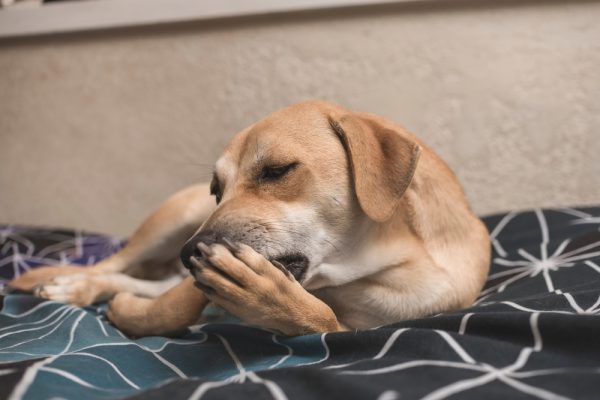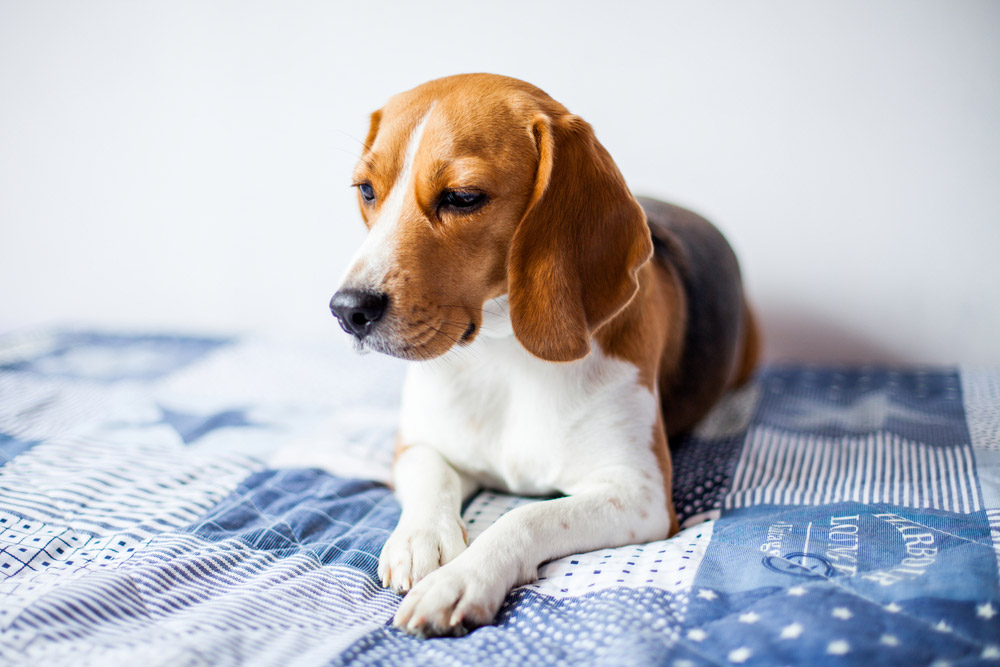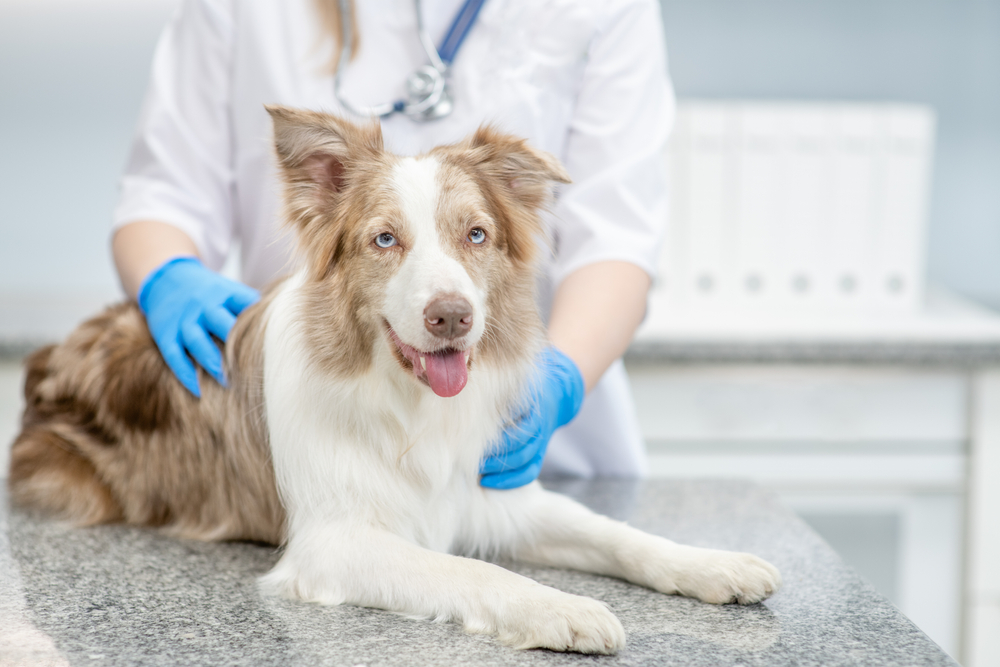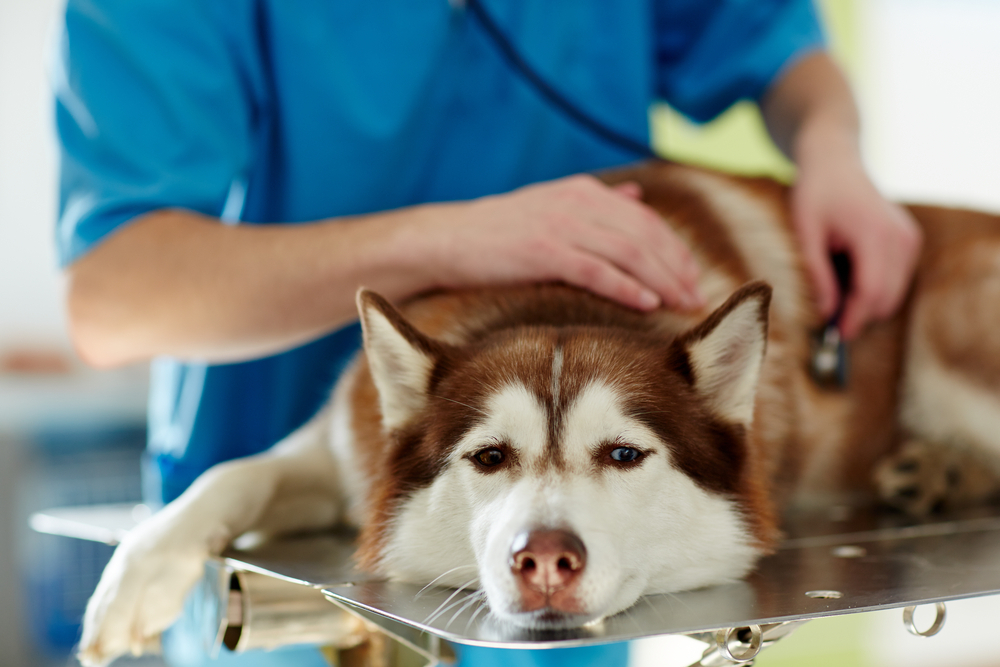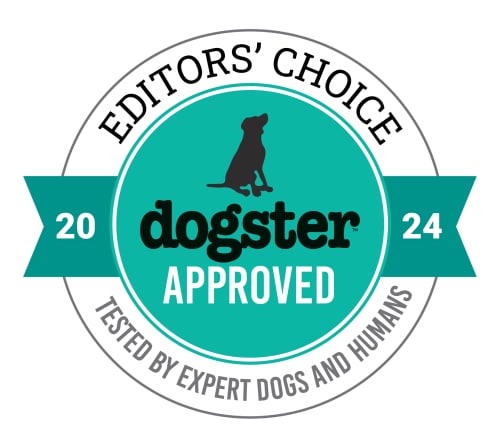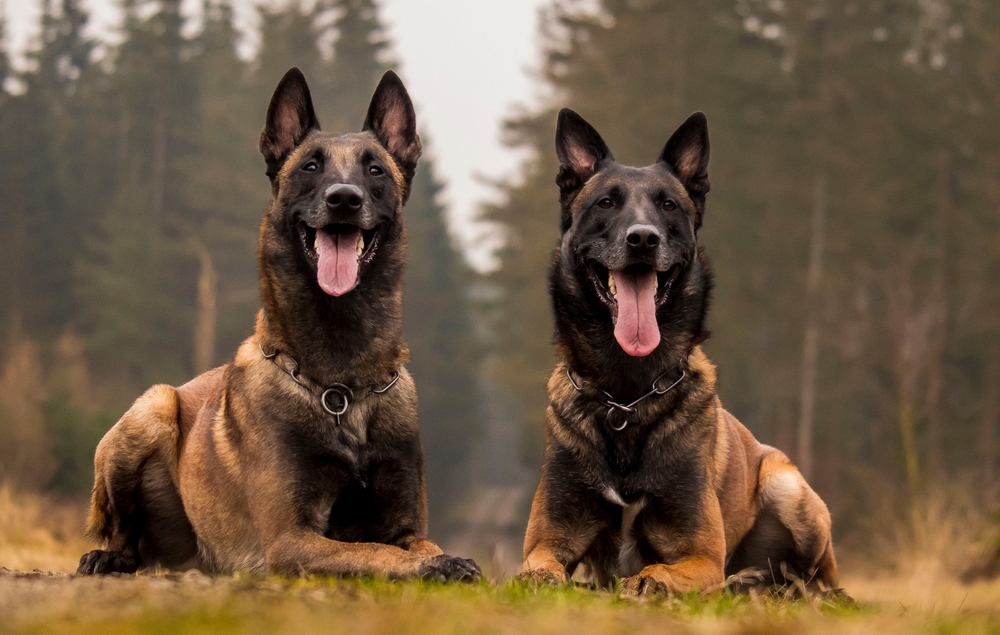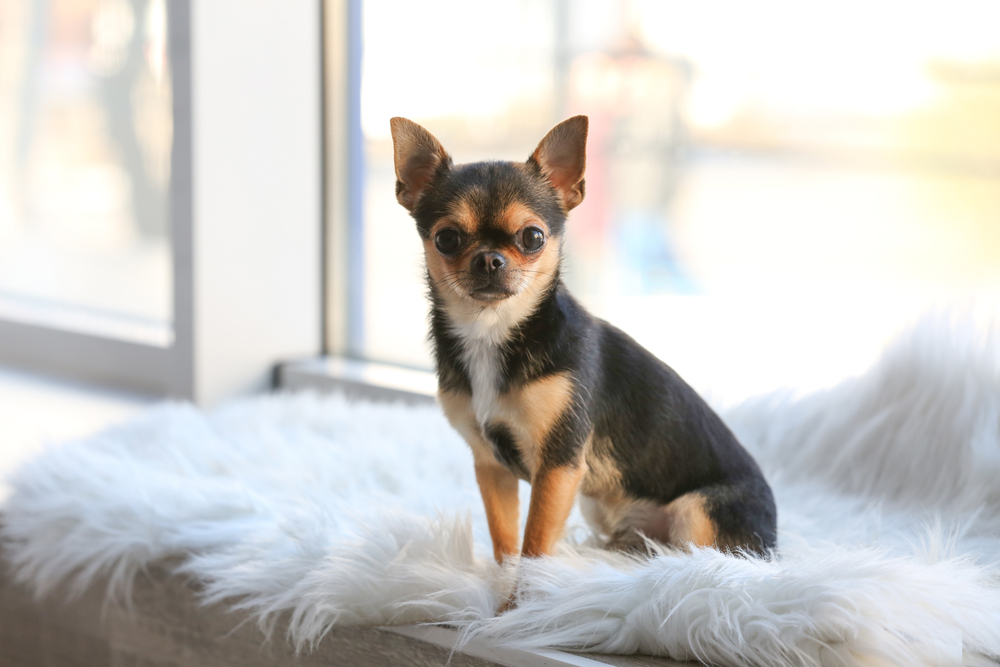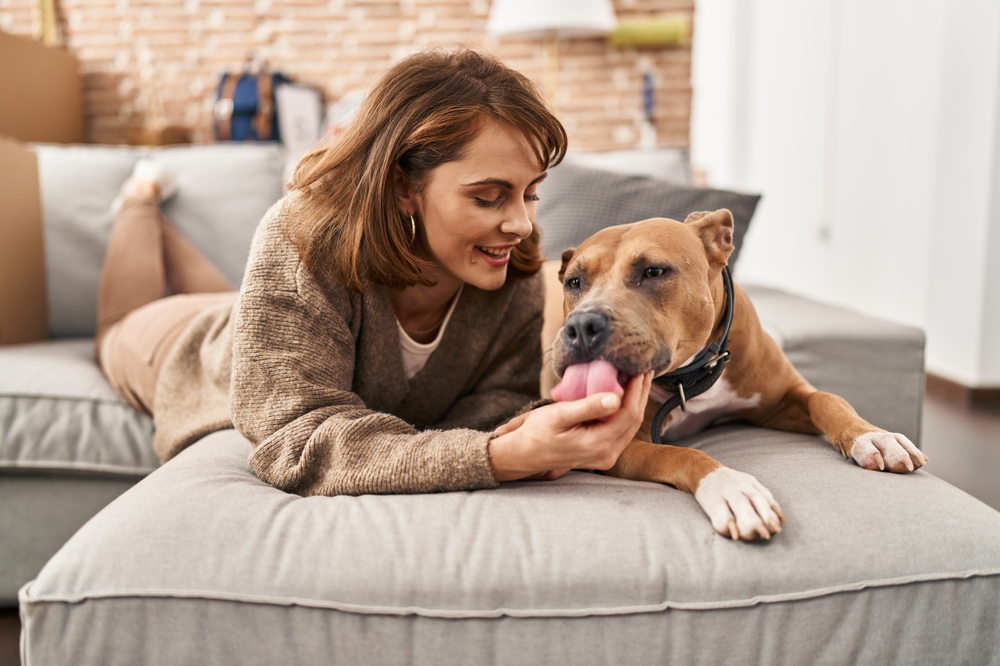Click to Skip Ahead
Dogs lick themselves; it’s just a fact of life. But why do they lick themselves so much? After all, it’s a bit of a gross habit! There are actually a few normal reasons dogs lick themselves, which we’ll look at below.
Perhaps a better question, though, is whether you should ever be concerned about your dog licking themselves. If you’re trying to determine whether your pup is engaging in normal licking behavior or licking that may indicate a problem, you’re in the right place. Here’s a look at what’s normal when it comes to dogs licking themselves and when you should pay closer attention to it.
The 5 Normal Reasons Dogs Lick Themselves
If you see your pup only licking themselves occasionally, it’s likely for one of these reasons.
1. Grooming
Our canine companions may not groom themselves as often as felines, but they do groom, and it’s a common reason for licking. If you see your dog resting on their dog bed and licking at an area for a minute or two, this is probably what they’re doing. This licking enables them to clean debris and dirt from the top layer of their coat, which leaves them feeling fresher.
A dog may also groom themselves after they go to the bathroom, as occasionally, they get a bit of urine or discharge on their fur when they do so. When that happens, they’ll get to work licking themselves to clean the area. However, if you see your pup constantly licking their genital area, there could be something going on, which you’ll want to have checked out.
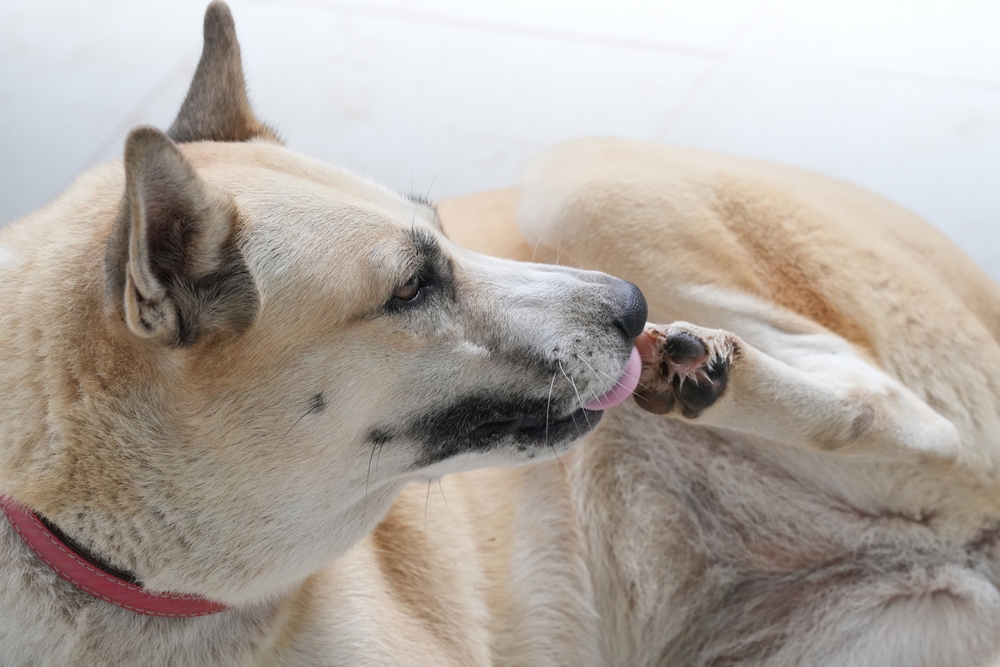
2. Itchiness
Have you seen your pet licking and chewing at one spot? Then they might be itchy. This could be due to something as simple as a bug bite, but it could also be due to a skin issue or something more serious. While canines will usually scratch at itchy areas of the body, they may also turn to their tongue to try to relieve the itchy feeling.
If your dog seems to be experiencing a lot of itchiness, you might want to talk to your vet. Your dog could have a skin allergy or fleas. In either case, medication should help clear the issue up.
3. Boredom
Is your pet left on their own for long periods? Do they sometimes receive less exercise and playtime than they should? Then, your pet might be bored, and if they’re bored, they may turn to licking themselves as a way to alleviate said boredom. If you see your pup licking themselves a bit more than usual and can’t find a cause, consider whether they’re getting enough attention, exercise, and playtime each day. If not, try to increase the amount of physical and mental stimulation they receive to see if it helps.
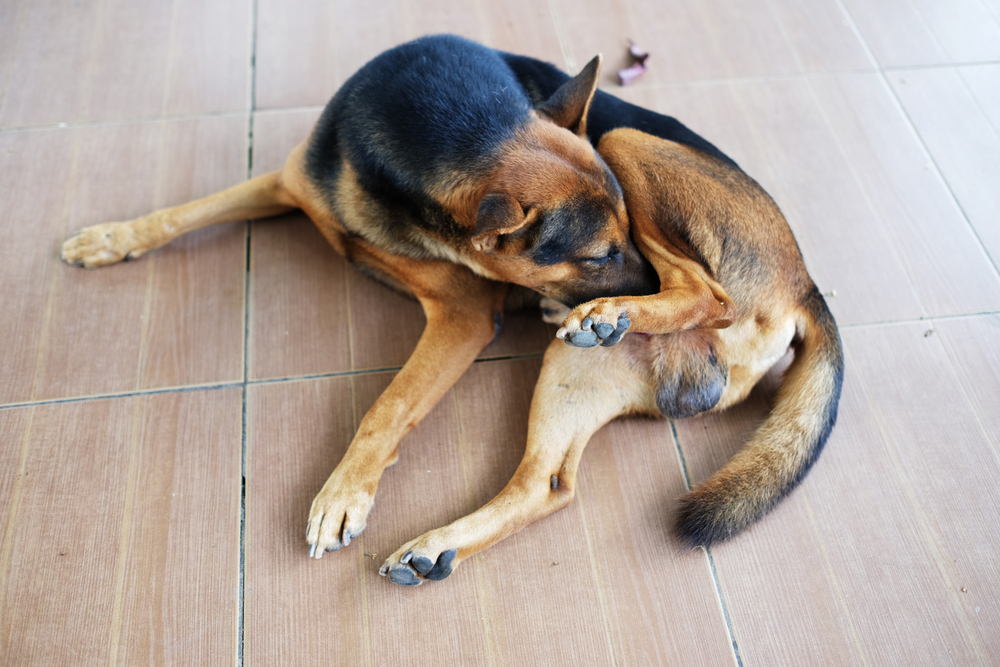
4. Pain
A canine might also lick if they’re in pain, especially if a particular area has a scratch or wound. Like licking to soothe an itch, a dog will lick to soothe pain. However, if the area they’re licking has an open wound, then all that licking could be turning the wound into the perfect breeding ground for bacteria to produce and cause an infection.
If you see a dog licking one spot over and over again, and this behavior continues for a while, it could be due to pain. Whether you can see a scratch or wound, talk to your vet because your dog will likely need medical intervention to remedy the issue.
5. Anxiety
Finally, another reason a dog licks themselves is due to anxiety. If a pup feels anxious or stressed, they could attempt to self-soothe via licking as the repetitive motion can be calming. A dog who is anxious may resort to excessive licking, so if you see this occurring and believe your animal is stressed, speak with your vet about ways to help alleviate their anxiety.
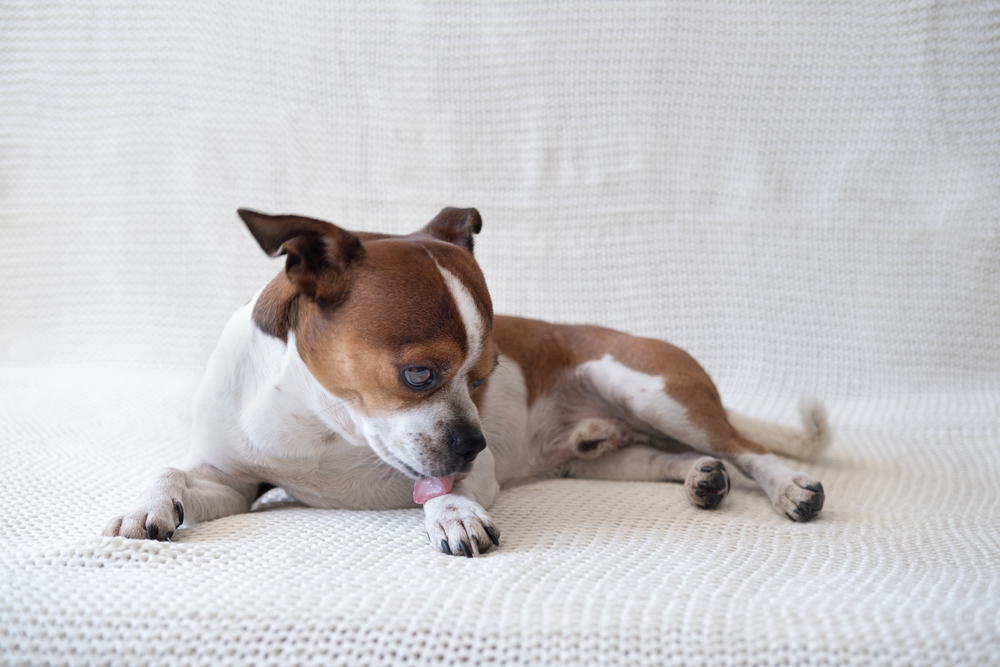
When Licking Is a Concern
As long as a dog is only licking now and then and exhibiting no clear signs of distress, there likely isn’t cause for concern. You probably noticed that we mentioned excessive licking earlier; excessive licking is when things go a little too far beyond the occasional session and is when you should take action to do something about it.
What is considered excessive licking when it comes to canines? Excessive licking is a near-constant licking that causes a pup to experience negative side effects. These effects could include skin irritation, bald patches where the fur has come off, or discoloration of the skin or coat. A dog engaged in excessive licking might also exhibit signs of discomfort while they’re doing the licking, such as whimpering or other distressed vocalizations.
- Matted fur close to the skin
- Hair loss
- Red irritated skin
- Often stopping other activities to lick
- Frequently wakes from sleep to lick
If you see any of the above, consult your vet. Your pet may be dealing with an illness, infection, parasites, pain, allergies, or behavioral issues. Your vet can help you determine a cause and find a solution.
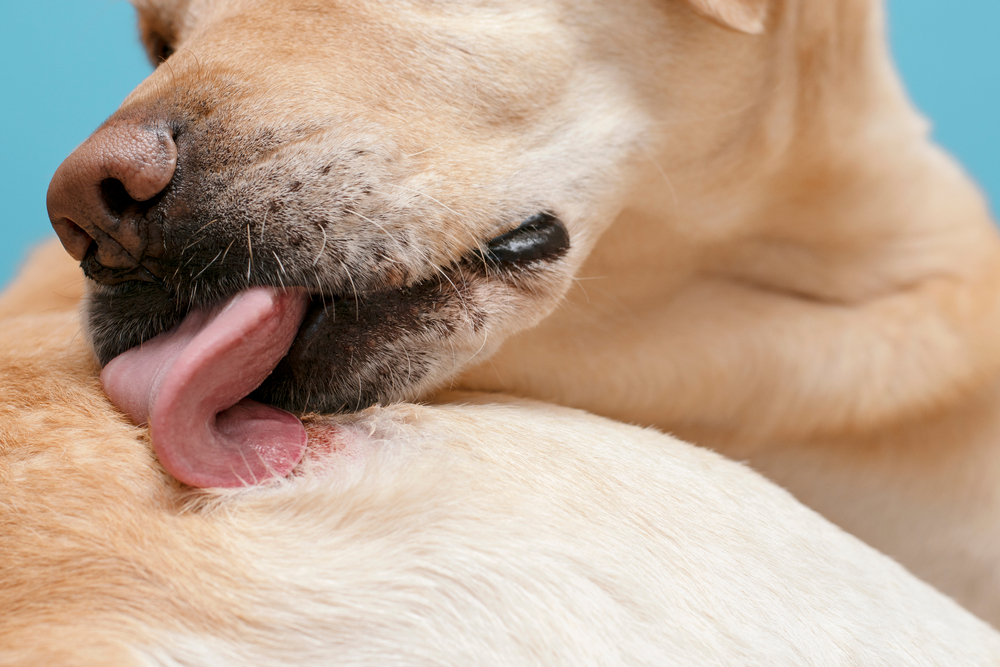
Conclusion
Most of the time, dogs licking themselves shouldn’t be a cause for concern, as dogs lick themselves for various reasons, including grooming and or a slight itch. However, if you notice your pup is excessively licking or showing signs of pain, anxiety, or distress, you should pay closer attention. These are indications that something is wrong with your pet, whether it’s a physical or behavioral ailment. Your vet can help determine why your dog is engaging in excessive licking, which will help you figure out how the issue should be remedied.
Featured Image Credit: MDV Edwards, Shutterstock


